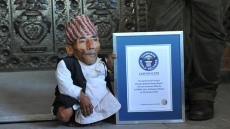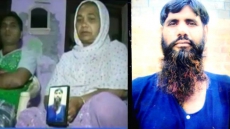Prime Minister Narendra Modi's Digital India initiative has sparked a war of words between pro- and anti-Modi academics of Indian descent spread over major American universities ahead of his visit to Silicon Valley.
The first salvo was fired by over 100 professors "who engage South Asia in our research and teaching" asking US technology executives to be wary of supporting Modi's Digital India initiative when he visits Silicon Valley on Sep 27.
Two English professors at Pennsylvania University, Ania Loomba and Suvir Kaul, who in 2013 led an effort to cancel a video speech by Modi at a conference hosted by the prestigious Wharton business school, were among the signatories to the faculty statement posted on the Academe Blog.
The other group hit back with Aseem Shukla, an associate professor of surgery at the University of Pennsylvania and a co-founder of the Hindu American Foundation, describing the anti-Modi petition "as a fine example of the Left's illiberal attitude towards those who do not agree with them".
"A counter petition against the anti-Modi statement given by some faculty of South Asian studies" was initiated by Kare Kankanam on Change.org, an American website providing a petition tool backed by nonprofits and political campaigns.
By Friday morning, the counter-petition accusing the anti-Modi group of lacking "the slightest respect for facts and for academic integrity" had gathered 1,230 supporters.
"The allegation that Narendra Modi ought to be viewed with suspicion, if not disdain, by business leaders in Silicon Valley because of surveillance implications in the Digital India initiative seems a desperate ploy rather than any genuine concern for India," said the counter petition.

"Their attempt to invoke an admitted mistake on the part of the US government in denying Modi a visa as a 'powerful signal' is a stark case of false reasoning ...and a deplorable attempt to exhume ugly lies about Modi's attitude towards Muslims," it said.
The "allegations that somehow academic freedom is under threat in India because of administrative changes at a couple of institutions are completely belied by the reality of what Indian citizens see in their news media every day", the counter petition said.
"On the contrary, for all their talk about assaults on academic freedom, the signatories of the anti-Modi letter have never admitted that the subject of the greatest censorship and distortion in South Asian academics in recent years has been Narendra Modi," it said.
Rejecting "the faculty statement against Modi in its entirety", the pro-Modi group asked the other "to introspect, change, and for once seek to earn the trust and respect of the community in whose name they have been making a living all these years".
Responding on the Academe Blog, the anti-Modi group said "despite the intimidation and harassment we have received at this blog site and elsewhere", their numbers had swelled from 125 to 135.
The group claimed that it "did not ask Silicon Valley companies not to invest in India; we asked them to consider carefully the terms of partnership with India".
"The objective of our letter is to raise awareness and debate in Silicon Valley and elsewhere, of Mr. Modi's record on key issues related to 'Digital India'," it said.
"Given the Modi administration's intolerance of dissent, its poor record on freedom of expression in general, and on freedom of religion in particular", the group asked "What does aDigital India' look like."

Even as they raised questions about Digital India, the group in its original Aug 27 letter acknowledged that Modi, "as prime minister of a country that has contributed much to the growth and development of Silicon Valley industries, has the right to visit the United States, and to seek American business collaboration and partnerships with India".





